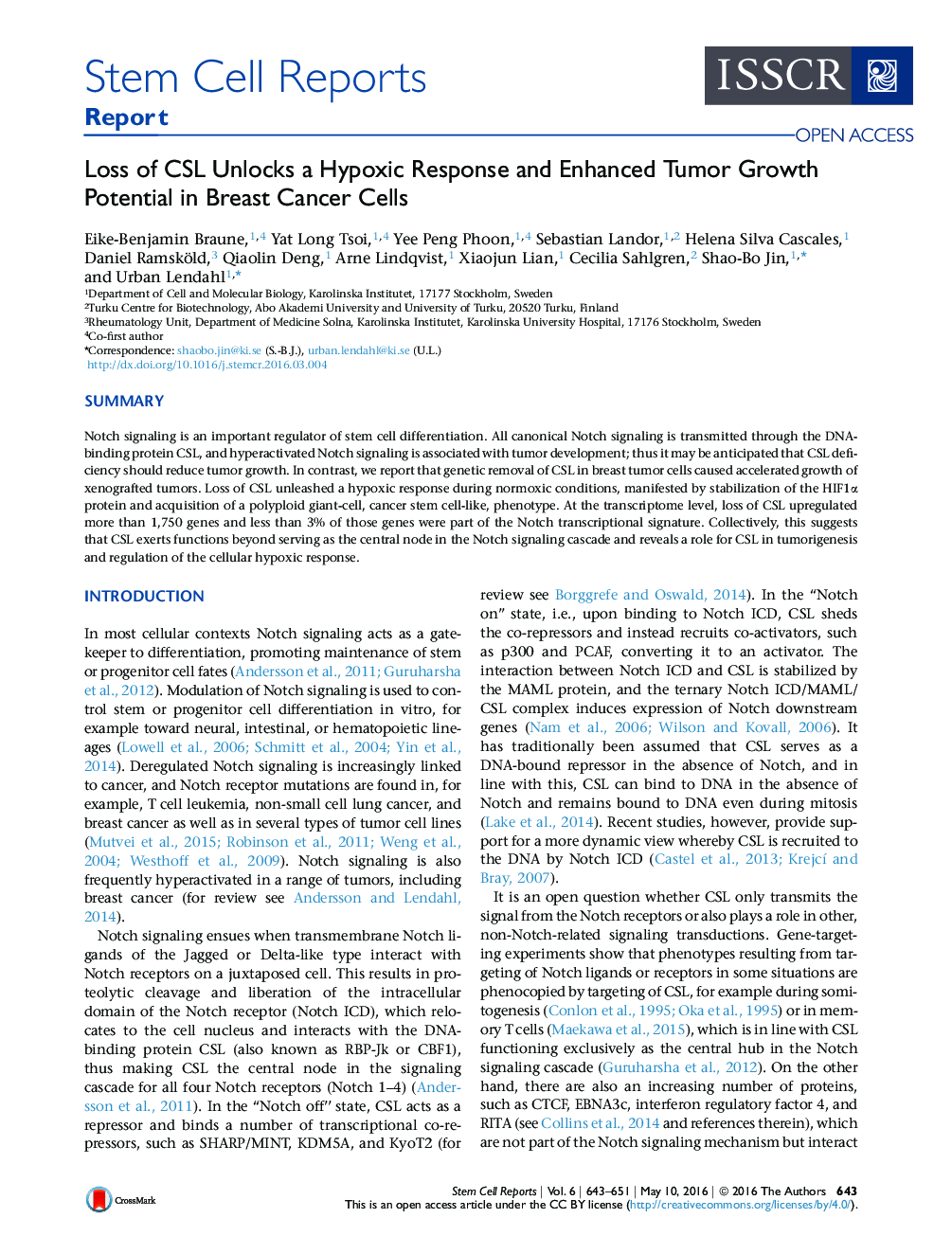| Article ID | Journal | Published Year | Pages | File Type |
|---|---|---|---|---|
| 2093223 | Stem Cell Reports | 2016 | 9 Pages |
•Loss of CSL accelerates tumor growth•CSL deficiency unleashes a hypoxic response during normoxia•Loss of CSL leads to a polyploid giant-cell, cancer stem cell-like morphology•CSL-deficient cells show a Notch-independent transcriptional signature
SummaryNotch signaling is an important regulator of stem cell differentiation. All canonical Notch signaling is transmitted through the DNA-binding protein CSL, and hyperactivated Notch signaling is associated with tumor development; thus it may be anticipated that CSL deficiency should reduce tumor growth. In contrast, we report that genetic removal of CSL in breast tumor cells caused accelerated growth of xenografted tumors. Loss of CSL unleashed a hypoxic response during normoxic conditions, manifested by stabilization of the HIF1α protein and acquisition of a polyploid giant-cell, cancer stem cell-like, phenotype. At the transcriptome level, loss of CSL upregulated more than 1,750 genes and less than 3% of those genes were part of the Notch transcriptional signature. Collectively, this suggests that CSL exerts functions beyond serving as the central node in the Notch signaling cascade and reveals a role for CSL in tumorigenesis and regulation of the cellular hypoxic response.
